|
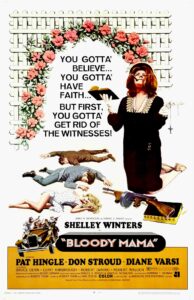
Synopsis:
During the Depression, notorious gangster ‘Ma’ Barker (Shelley Winters) leads her four grown sons (Don Stroud, Clint Kimbrough, Robert De Niro, and Robert Walden) on a deadly crime spree across the Ozarks.
|
|
Genres, Themes, Actors, and Directors:
- Bruce Dern Films
- Depression Era
- Gangsters
- Grown Children
- Incest and Incestuous Relationships
- Outlaws
- Pat Hingle Films
- Robert De Niro Films
- Roger Corman Films
Review:
Bloody Mama — one of the last films directed by famed B-movie producer Roger Corman — is widely acknowledged as one of his best, and remains a bizarrely compelling cult favorite. Loosely based on the exploits of Kate ‘Ma’ Barker and her sons, Bloody Mama is a surprisingly complex — albeit entirely “imagined” — interpretation of this infamous clan’s warped existence. The film opens with a disturbing scene of young Barker (Lisa Jill) being raped in the forest by her father and brothers, thus establishing the ethos that in the backwoods Barker family, “blood is thicker than water”; immediately afterward, we see ‘Ma’ Barker (Winters) bathing her grown sons, and are quickly made to understand that she holds a firm matriarchal grip over them, both psychologically (her word is God) and sexually (she sleeps with her sons at will). In response, each son is uniquely neurotic: Stroud (the oldest) is uncontrollably violent and Oedipally obsessed with his long lost father; Walden is meekly dominated by his jailhouse lover (Bruce Dern, gleefully psychotic in a bit role); Kimbrough is a religious fanatic; and De Niro (film fanatics take note!) is a loopy coke fiend.
Corman, working with a slightly higher budget than usual, does an admirable job recreating the Depression era exploits of the Barkers, who — much like Bonnie Parker and Clyde Barrow — became notorious celebrities in their day. But the Barkers’ criminal misadventures ultimately take a backseat to the more fascinating saga of their bizarrely dysfunctional family dynamics, which eventually — perhaps inevitably — precipitate their fatal undoing. Winters (100% invested in her role; she’s perfectly cast here) is the glue that holds this perverted household together; but when she starts ordering the deaths of innocent hostages — first a vivacious young swimmer (Pamela Dunlap) who flirts (at her own unknowing peril) with De Niro, then a compellingly decent millionaire (Pat Hingle) who’s been kidnapped for ransom — her children finally begin to realize that Mommy doesn’t always know best. Alas, by this point it’s too late for any genuine redemption to come to the Barker clan — so bloodthirsty audiences can rest assured that a riveting denouement lies in wait.
Note: In a 1970 interview with Sight and Sound magazine, Corman himself acknowledged that comparisons with the previous year’s cult hit Bonnie and Clyde were inevitable, but noted that his approach “was not to romanticize or glorify, but to stay closer to what I felt the reality was.” While Bonnie and Clyde is clearly the superior film in many ways, the two movies ultimately rest upon their own unique merits.
Redeeming Qualities and Moments:
- Shelley Winters as Ma Barker
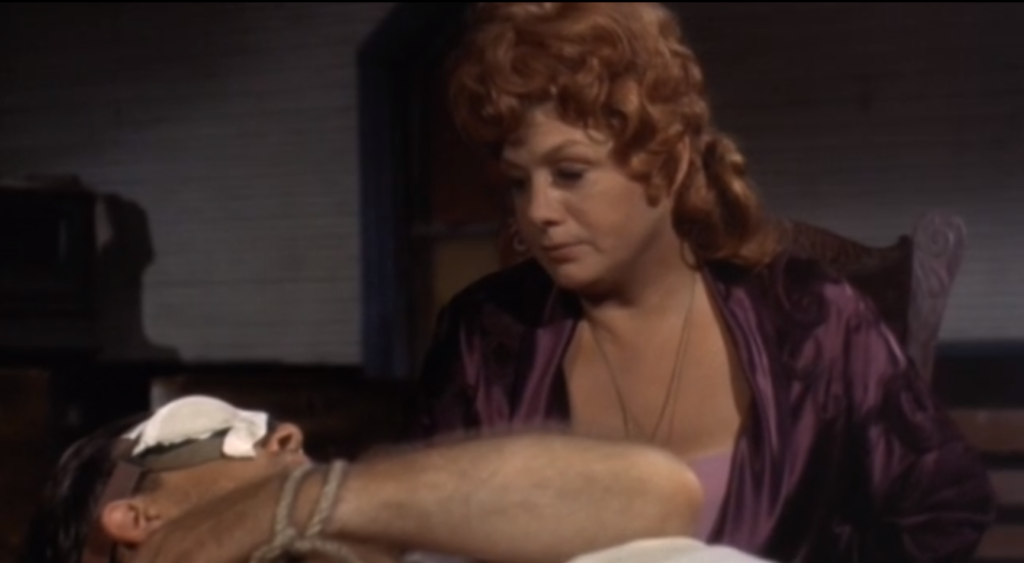
- Pat Hingle as Sam Pendlebury, the millionaire hostage
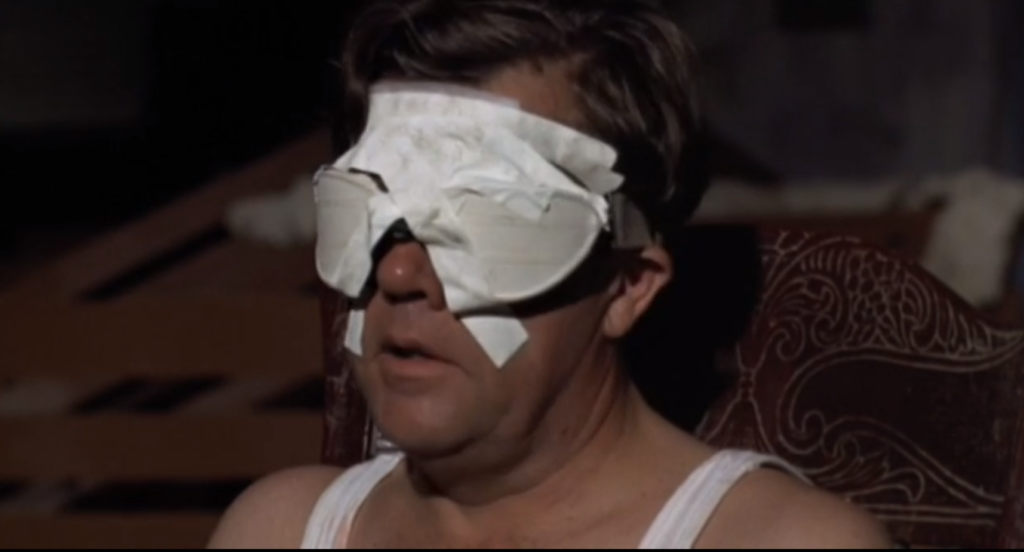
- Don Stroud as Herman Barker
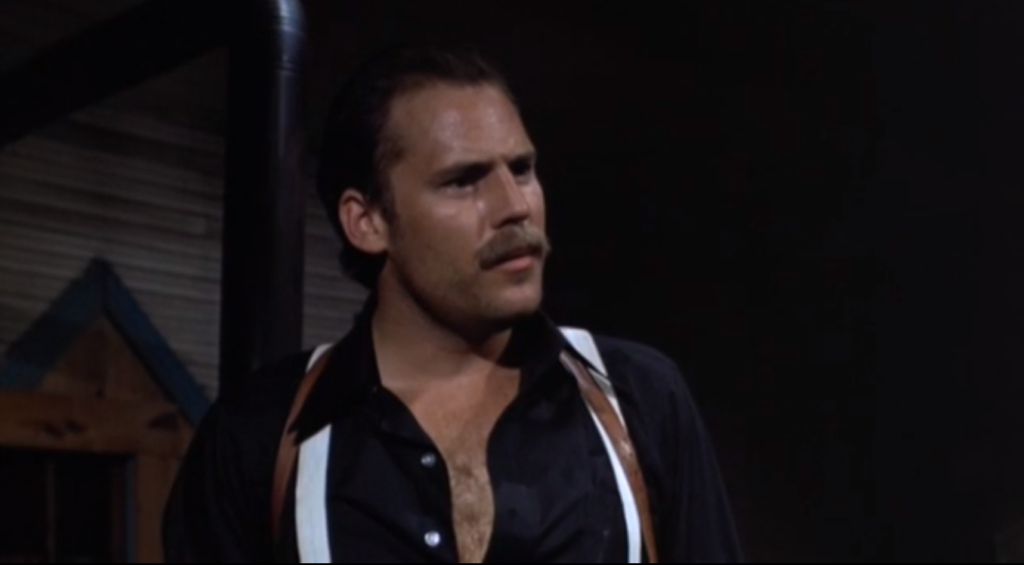
- Robert De Niro as Lloyd Barker
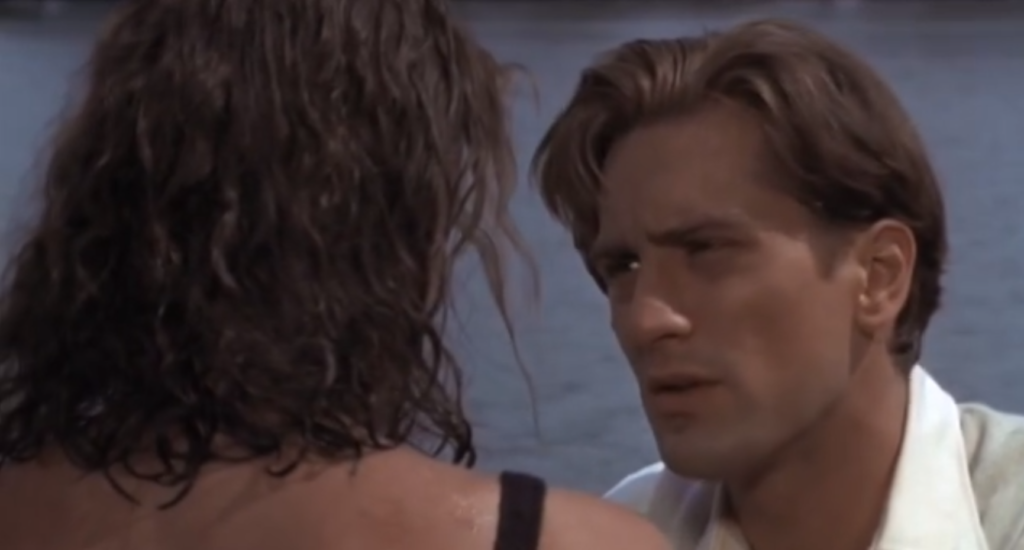
- Pamela Dunlap as “Rembrandt” (the ill-fated young swimmer encountered by De Niro
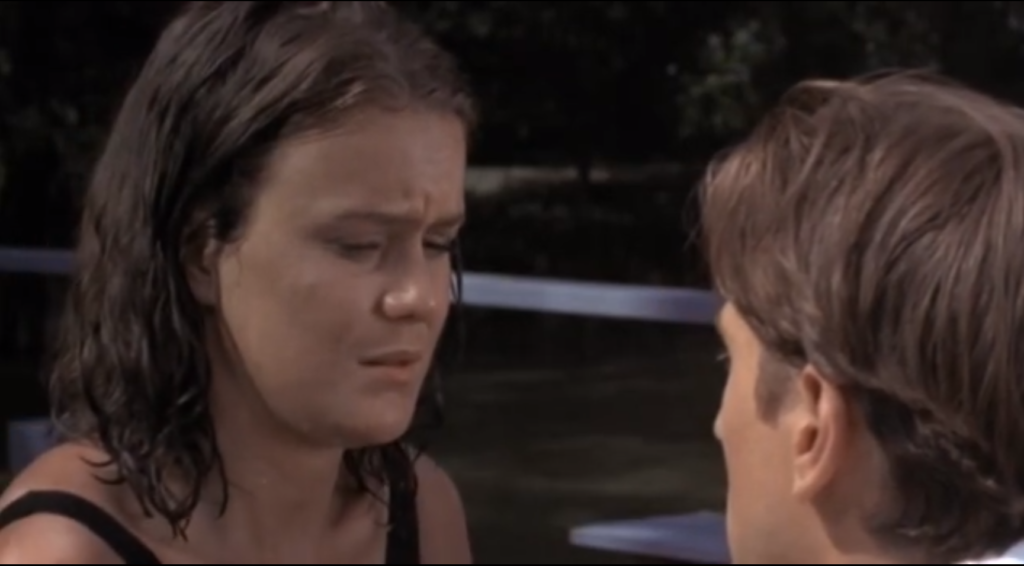
Must See?
Yes, as one of Corman’s best pictures, and a cult favorite. Listed as a Cult Movie in the back of Peary’s book.
Categories
- Cult Movie
- Important Director
Links:
|






One thought on “Bloody Mama (1970)”
A must, and in complete agreement with the assessment.
How often has there been a bio-pic that stuck closely to the facts? It seems to happen so seldom that one must simply go into one accepting the fact that fiction awaits. (Wikipedia clears up much about the roots of this myth-based film, written rather interestingly by Robert Thom and solidly directed by Corman. I love the statement about bank robber Harvey Bailey’s autobiography: “Ma Barker ‘couldn’t plan breakfast’ let alone a criminal enterprise.”)
‘BM’ suggests that the Barkers fell into a life of crime almost by accident; that Ma Barker left her husband because he was a nice-enough guy but ultimately ineffectual, and she thought she would have a chance at a better life if she were on her own with her sons. Such a life turns out to be something none of them have a clue about.
The biggest surprise here is that the film is neither as over-the-top nor as violent as one might think. No one – not even Ms. Winters! – is going for camp and the incidents of terror are kept to a minimum. Still, there are no lulls. What we get between major dramatic moments are character-based scenes that enrich. (Perhaps the most disturbing of these – and the best in terms of acting – is the one involving De Niro when he discovers Dunlap swimming.)
Many people tend to think that, late in her career, Shelley Winters simply went for playing your basic harridan – which is simply not the case if one reviews esp. her other performances of this period (‘Wild in the Streets’, ‘What’s the Matter with Helen?’, ‘The Poseidon Adventure’, etc.). She’s a better, more consistently solid actress than many give her credit for.
As well here, note should be taken of fine work turned in by not only De Niro but also Hingle, Stroud (very impressive) and Diane Varsi (see imdb.com for the odd way her career turned out).
Myself, I do wish the prison scene between Walden and Dern were a bit more interesting – or even a bit more clear; but that’s a small point.